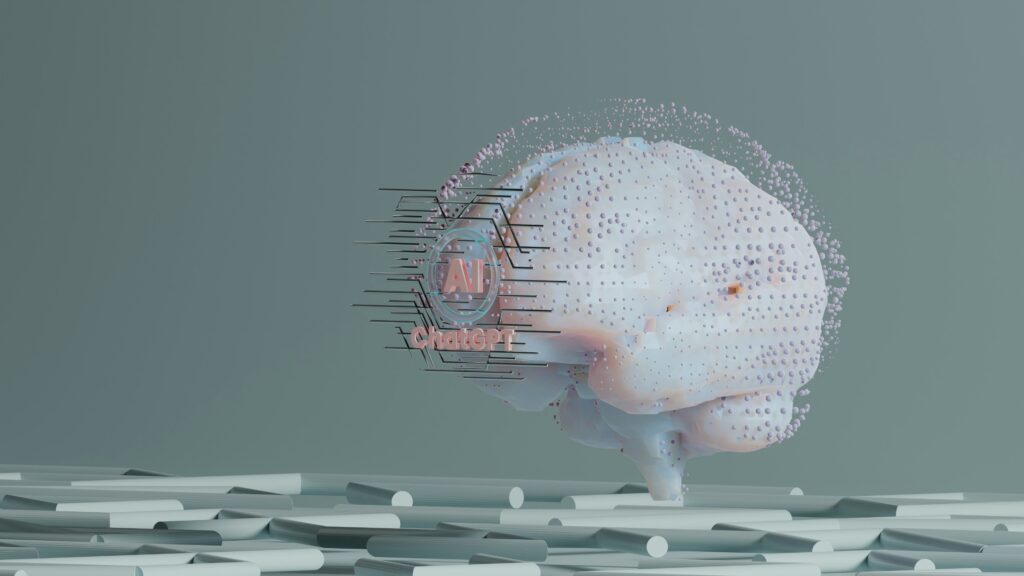Artificial Intelligence is going global in transforming many industries, and stock market trading is certainly one of them. With the increasing growth in AI-based trading systems, investing habits have been changing quickly in terms of analyzing data, predicting market trends, and executing trades as fast as possible. This all boils down to machine learning algorithms, high-frequency trading, and AI robo-advisors that keep on making the world of finance ever-evolving.
Actually, the ability of AI systems to take in large volumes of data, capture knowledge of the patterns within it, and make real-time decisions will change the game remarkably. An entire financial industry welcomes artificial intelligence with open arms to do the optimization of strategies, risk minimization, and profitability maximization. Let us further evaluate how AI affects stock trading-the positive aspects, the challenges, and the futuristic developments in AI investing.

Ways AI Is Changing Stock Market Trading
To a great extent, artificial intelligence is transforming stock market trading by improving it in several ways. Indeed, efficiency, accuracy, and speed in decision-making are some of the areas that AI has affected greatly in stock market trading. Here are some examples of the areas where AI is really affecting the change made in stock market trading:
1. Algorithmic Trading
Algorithmic trading, otherwise referred to as algo-trading or automated trading, is that which employs AI to assist in executing trades within the shortest time possible based on a predetermined criterion. Such algorithms analyze market data in large volumes, look for specific patterns and execute trades through a computerized system that usually requires no human intervention. Hence, AI algo trading avoids human errors, all possible by real-time market activity.
Now let’s talk about the real-world example:
Some of the world’s top hedge funds like Renaissance Technologies and Citadel, use AI algorithms to gamble at ultra-high speeds with the least exposure to risk, thereby improving their returns manifold.
2. High-Frequency Trading (HFT):
To put it simply, High-Frequency Trading refers to algorithmic trading in which a cascade of automatic, rapid, and high-frequency executions is involved. A high-frequency trading engines actually perform thousands of transactions through the policy of an AI-driven algorithm in the time span of less than 1 millisecond. It eventually tries to make some money based on the minute difference in the price, indicating possible inefficiencies in the market.
Industry Insight:
Reports say that high-frequency trading now accounts for more than 50% of trades executed on the US stock market.
3. Predictions and Analysis in Markets
AI can read the entire stock market historical data and recognize patterns in this data which are indications of future price movements. Use of machine learning models permits processing great amounts of financial data, including news sentiment, economic indicators, and company performance reports, which in turn leads to greater prediction accuracy in stock trend forecasting than using traditional analysis.
Key AI Tools:
- IBM Watson Market Predictions
- Bloomberg Terminal AI Analyzed
- AlphaSense Stock Sentiment Insights
- Kensho AI Financial Market Intelligence
Robo-Advisors AI Controls
A robo-advisor is an AI-enabled financial advisory platform that is designed to provide automated investment recommendations. They draw insights from user preferences, the risk tolerance of the investor, and market conditions to recommend suitable investment portfolios for the user. Hence, the AI-enabled robo-advisors like Betterment and Wealthfront facilitate inexpensive and user-friendly investing.
Case Study:
AI robo-advisors outperformed human advisors on portfolio management in a study conducted in 2023, returning an average of 12% higher returns on investments.

5. Analysis of Sentiment for Trading
Sentiment Analysis involves market actors who use AI for both processing and analyzing news articles, social media trends, and financial reports in an effort to assess investor sentiment. Traders utilize AI-powered sentiment analysis programs to inform trading with a view on how news and events may impact stock prices.
Example in Action:
AI sentiment analysis offered early warnings of the Reddit discussions about GameStop (GME), and traders leveraged those insights to ride the stock on its spike during 2021.
6. Risk Management by AI
AI helps traders and investors in identifying risks before they can turn significant. By monitoring market conditions and economic trends, AI can alert traders to impending downturns, allowing them to reposition their portfolios.
Example:
JPMorgan Chase integrated AI into its risk management systems through machine learning algorithms to detect fraudulent transactions and mitigate potential losses.
Benefits of AI in Stock Market Trading
The integration of AI in stock trading offers numerous advantages, including:
- Enhanced Decision-Making: AI-driven trading strategies use data-driven insights to minimize risks and maximize profits.
- Speed and Efficiency: AI-powered trading systems can execute trades in milliseconds, reducing latency and improving market responsiveness.
- Reduced Human Bias: AI eliminates emotional decision-making, leading to more objective and calculated investment strategies.
- Improved Risk Management: AI can assess market conditions and portfolio risks in real-time, helping traders make better risk-adjusted decisions.
- Increased Accessibility: AI-powered robo-advisors provide low-cost investment solutions, making financial markets accessible to a wider audience.
Challenges and Risks of AI in Stock Market Trading
AI-driven stock trading, however, still comes with challenges.
- Market Volatility: AI-driven trading strategies may sometimes aggravate or enhance market volatility, more so in high-frequency trading.
- Data Privacy Issues: AI depends on large quantities of all sorts of financial data, which raises security threats and privacy issues.
- Algorithmic Error: A wrong algorithm or wrong reading of market data can cost a lot of money.
- Regulatory Issues: Financial regulators have yet to create complete frameworks for AI-focused supervision of trading in order to ensure market fairness and transparency.
Notable Incident: Flash Crash of 2010
That was the year of 2010, which possessed an event known as the Flash Crash. It was the event in which algorithmic trading went wrong, causing a drop of nearly almost 1,000 points for the Dow Jones on exhaustively less than a few minutes.
Future of AI in Stock Market Trading
Future advancements of AI in stock trading look marvelous; many advancements are going to unfold in the near future.
- Quantum Computing in Trading: AI-powered quantum computing may take trading to different levels by processing the complicated market data faster than has ever been done.
- AI-Powered Portfolio Management: Future tools of AI would facilitate even more advanced investment strategies in real-time adjustment along with the dynamics of the market.
- Blockchain on top of AI: The merging of AI technology and blockchain would ensure that financial transactions would be secure, transparent, and efficient.
- Full Automation of Trading Systems: Soon, perhaps in the very near future, even fully AI-driven trading bots would quite possibly work with no or minimal human intervention and achieve investment optimization at dimensions of accuracy never achieved before.
- Ethical AI Trading Regulations: Governments and regulatory bodies will create tighter regulations to guarantee fair practices and to prevent manipulative activities in markets.
Read now our this article:How AI is Revolutionizing the Financial Industry: The Future of Banking & Investment





Pingback: "AI in Personal Finance: How Artificial Intelligence is Transforming Money Management" - Finvise Pro
Pingback: Tesla Stock in 2025: Future Outlook, Predictions, and Investment Potential - Finvise Pro